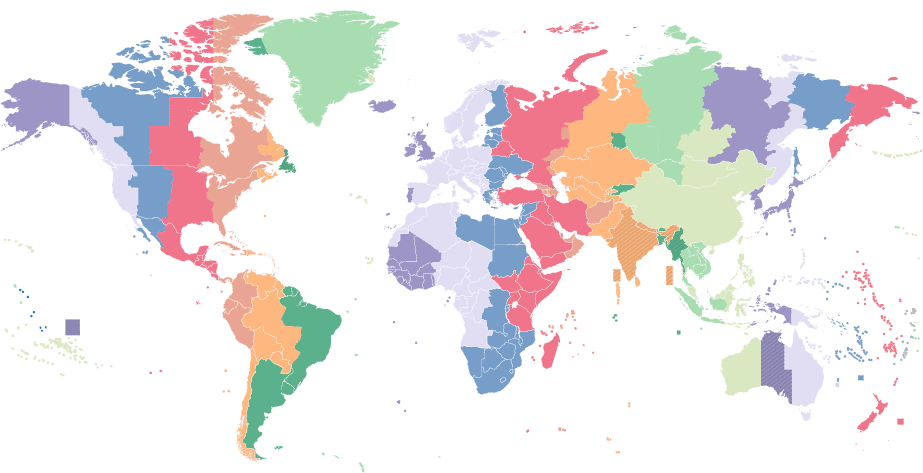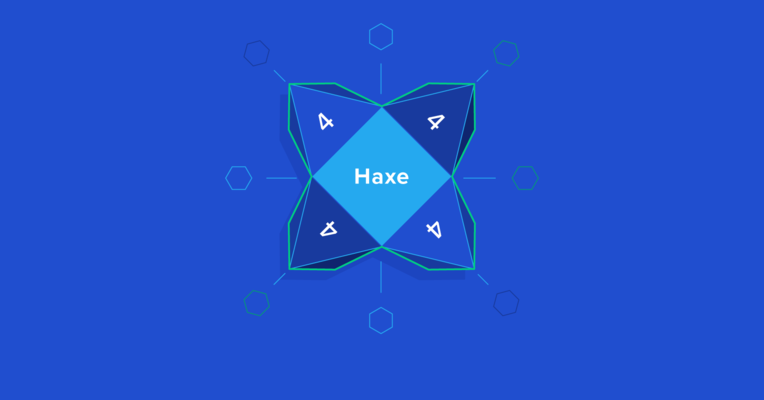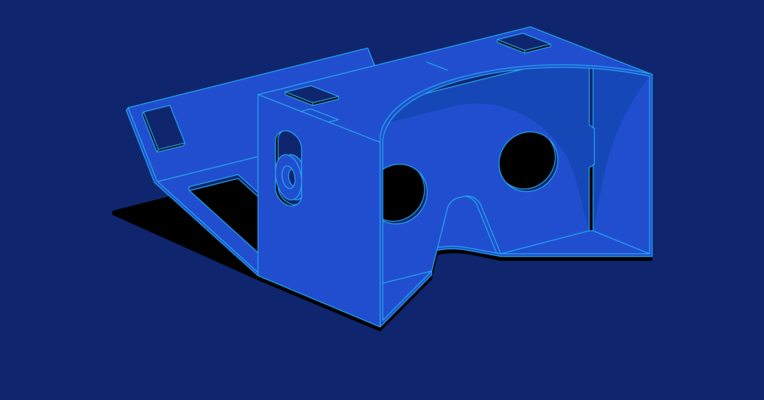The Growing Demand for Game Developers
The demand for game development experts continues to expand due to the rapid growth of the global gaming industry, which is projected to reach a market size of $721.77 billion by 2034, up from $274.63 billion in 2024. This surge is driven by advancements in technology, the popularity of mobile games, and the rise of immersive experiences such as virtual reality (VR) and augmented reality (AR). As gaming becomes more mainstream, appealing to diverse demographics and age groups, game development studios are investing heavily in innovative content and high-quality user experiences. For hiring managers, understanding this trend is crucial, as it underscores the importance of recruiting skilled developers who can leverage cutting-edge technologies to create engaging games that stand out from the competition.
Game development requires software engineers with a specialized skill set that includes proficiency in specific programming languages, familiarity with popular game engines, and expertise in areas like physics, AI, graphics programming, and animation. Finding candidates with the right blend of these skills to meet your project requirements can be difficult. Nevertheless, even if you are unfamiliar with the intricacies of game development, there are several practical guidelines you can use to assess potential candidates’ technical expertise and suitability for your project. In this guide, we’ll cover the attributes that differentiate top-tier game experts from others, how to identify the right candidate for your needs, and some of the most important interview questions you should ask during the candidate selection process.
What Attributes Distinguish Quality Game Developers From Others?
A game development specialist is essential to the success of a game studio and plays a critical role in the development process, from implementing game designers’ concept and vision for the game to postlaunch support, including fixing minor bugs and creating patches and updates to further optimize the game and add new content and features. Game programmers write a variety of code that forms the backbone of a video game and enables all its functionalities and interactions. This code is typically written in programming languages such as C++, C#, Java, and Python, depending on the game engine and platform. There are different considerations for game dev for PCs or consoles versus mobile app development.
Some key types of code that developers write are:
-
Game mechanics code, which defines the rules and systems that govern the gameplay. This includes character movement, physics, collision detection, and interactions among objects.
-
Artificial intelligence (AI) code, which controls the behavior of nonplayer characters (NPCs) and other in-game entities. This can range from simple pathfinding algorithms that allow NPCs to navigate the game world to complex decision-making systems that enable them to react to player actions in a realistic manner.
-
User interface (UI) code, which manages the visual elements that players interact with, such as menus, health bars, and inventory screens. This code ensures that these elements are responsive and intuitive, providing a seamless user experience.
-
Graphics code, which is responsible for rendering the game’s visuals, including textures, lighting, and special effects. This code interacts with the graphics processing unit (GPU) to draw each frame of the game, ensuring smooth and visually appealing graphics.
-
Networking code, which handles the communication among different players’ devices for multiplayer games. This includes synchronizing game states, managing server connections, and ensuring data integrity. Networking code is crucial for providing a lag-free and fair multiplayer experience.
Game experts also implement sound into a game through audio programming or sound programming. In this specialized area of game development, quality developers focus on integrating various audio elements—such as sound effects, background music, dialogue, and ambient sounds—into the game to enhance the overall player experience.
Games can also run in browsers on desktops and mobile devices. Browser-based games typically leverage the animation and interaction capabilities of HTML5 in conjunction with JavaScript. Although the functionality might be more limited than with mobile apps, modern browser-based games can be as smooth and responsive as dedicated apps.
Core Skills to Look For When Hiring Game Developers
Technical expertise in the programming languages commonly used in game development is a nonnegotiable skill that professional game specialists of any level of experience must have. Beyond this baseline requirement, though, there are a number of key competencies and skills to look for that will help you distinguish top-notch gaming developers from others, which we’ll outline below:
Proficiency with game engines: A game engine is a software framework designed to facilitate the development of both 2D and 3D video games. It provides a suite of modern day tools and functionalities that streamline the game creation process, allowing developers to focus on design and gameplay rather than reinventing the wheel for common tasks. Game coders have extensive experience working with industry-standard game engines like Unity and Unreal Engine, as these tools are essential for creating and managing the complex environments, physics, and interactive elements of a game. A high degree of skill in using these engines allows talented developers to implement game mechanics, render graphics, and optimize the game’s performance with maximum efficiency. In general, Unreal Engine’s focus on graphics makes it popular among game companies producing PC and console games, while Unity developers appreciate Unity’s cross-platform compatibility for mobile game development.
Understanding of real-time rendering and graphics programming: Game programmers need a deep understanding of real-time rendering and graphics programming to create visually appealing and immersive game experiences. This includes knowledge of shaders, lighting models, particle systems, and optimization techniques to ensure smooth performance across various hardware platforms. An expert developer should also have extensive knowledge of how to work with graphics APIs (e.g., OpenGL and DirectX) that offer modern day tools and functions to render 2D and 3D graphics efficiently. While professionals in other areas of web development or software development might work with graphics, the real-time aspect and the need for high frame rates are unique to game development, and an ideal candidate should excel in these areas.
Experience with animation systems: Professional game experts often work closely with animators to integrate character animations and other dynamic elements into the game. This requires knowledge of animation systems, including skeletal animations, blend trees, and inverse kinematics. An ideal candidate will have a deep understanding of inverse kinematics and procedural animation techniques, which enable them to create dynamic and responsive animations that adapt to various gameplay scenarios. An experienced developer should also have demonstrated skill in optimizing and integrating complex animation systems to smooth transitions and create realistic character movements with high visual fidelity.
Skilled implementation of game mechanics and physics: One of the core responsibilities of a gaming developer is to implement game mechanics and physics that govern how the game world operates. This includes coding the rules for character movement, collision detection, object interactions, and environmental effects. Without a doubt, qualified developers need to have a strong grasp of the principles of physics and how to simulate them in a virtual environment. Ideal candidates also possess the knowledge to seamlessly integrate physics engines and custom scripts to create complex, dynamic environments that respond accurately to player actions, unlike a less accomplished game programmer who might rely on simpler, out-of-the-box solutions that lack customization.
Advanced audio programming skills: Desirable candidates have an especially strong understanding of the many ways that sound is essential for creating an immersive gameplay experience through rich use of background music, sophisticated sound effects, and naturalistic dialogue. Dedicated game programmers have extensive knowledge of how to write code that manages audio playback, spatial audio, and dynamic sound effects that respond to in-game events. A quality candidate will also be capable of interfacing with audio engines or middleware like FMOD or Wwise and collaborating closely with sound designers to integrate adaptive audio that dynamically changes based on gameplay conditions to provide more engaging and responsive soundscapes.
Overall, game specialists who exhibit these levels of technical expertise are invaluable to a studio that aims to produce high-quality, market-ready games that stand out in a competitive industry.
How Can You Identify the Ideal Game Developer for You?
Before you start the hiring process, it’s essential to clearly define the specific needs of your project and game studio, including what type of gaming developer you need and what their daily responsibilities will look like. You should also consider important questions like the following: What type of game are you developing (e.g., Android, iOS, console, PC, cross-platform)? What are the project’s technical requirements, and what engine will the game be built on? What level of experience is required? What is your budget for the role, and what is the project’s timeline?
Based on your answers to the questions listed above, requirements for your candidates’ skill sets and knowledge of specific tools and advanced technologies may vary significantly. However, understanding the basic distinctions between junior, mid-level, and senior game coders will help you make informed decisions in your effort to hire game engineers best suited to the needs of your studio and existing team.
How to Hire a Game Developer Based on Experience Level
Junior developers typically have 0-2 years of experience. They are competent coders in at least one or two programming languages and have a basic understanding of game engines. These candidates can implement basic game mechanics and features and handle smaller, well-defined tasks related to coding and debugging. However, junior developers may need guidance on accomplishing more complicated tasks or solving more complex problems, which can place additional demands on senior members of your video game development team and slow down the overall development process. These candidates can be ideal for handling straightforward tasks—especially if they are committed to overcoming the learning curves inherent to game development—and based on your project needs, they can be the most cost-effective option.
Mid-level developers usually have 3-5 years of experience in game development and have likely been involved in several projects from start to finish. These candidates have advanced knowledge of game engines and multiple programming languages. Depending on their areas of specialization, mid-level developers will also be adept in developing complex mechanics, implementing artificial intelligence and physics systems, optimizing advanced graphics features like shaders and particle systems, and/or integrating and managing audio features like sound effects and background music. Mid-level developers are capable of developing and maintaining core game systems, mentoring junior developers, and collaborating effectively with designers and artists to implement game features. Candidates with this level of experience are versatile and can handle a variety of tasks, including performance optimization and debugging sophisticated code, making them valuable for both ongoing development and refining various aspects of gameplay. Hiring this type of game programmer can help you strike a balance between budget and experience.
Senior developers boast 5+ years of comprehensive experience in game development and have often led projects from concept to release. They exhibit mastery in using multiple programming languages and game engines and have a deep understanding of game design principles, performance tuning, and platform-specific optimization. These are the most qualified candidates to lead and mentor a video game development team and ensure that the game meets high quality, performance, design, and user experience standards. Because of their wealth of expertise, senior developers are instrumental in making architectural and high-level strategic decisions (including the technology stack, tools, and development practices that their team will use). These candidates excel at implementing innovative solutions to resolve even the most complex technical challenges. Senior developers are skilled at communicating effectively with stakeholders to align the development process with business goals and time frames, and they have a track record of success in cross-discipline collaboration with art, design, sound, and marketing teams. Looking for a game dev for hire can be time-consuming due to the high demand for senior candidates of this caliber, who also tend to command the highest salaries or hourly rates. Nevertheless, depending on your job requirements and your game studio’s priorities, pursuing this type of candidate can be extremely worthwhile.
How to Write a Game Developer Job Description
Beyond the key requirements and technical proficiencies described above, be sure to emphasize relevant soft skills in your job description and throughout the application process, such as collaboration and communication skills, problem-solving skills, and creativity. Because game development is a highly collaborative process that involves working closely with designers, artists, and other developers, the ideal candidate should possess strong collaboration and communication skills to guarantee that they can understand and implement the creative vision of the game while coordinating efficiently with other team members. The best game professionals should also demonstrate strong problem-solving skills and creativity, as these abilities enable them to overcome complex technical challenges and devise innovative solutions to ensure that a game is both technically sound and uniquely engaging, which is essential for standing out in a competitive market.
Include any relevant details of the position, including whether you are looking for a part- or full-time developer and if the position is on-site, hybrid, or remote. Timezones are a consideration when working with remote developers; a team in the USA may not have overlapping work hours with a development team in Asia.
It’s also imperative to hire game specialists who have a genuine passion for gaming. This passion often drives a developer to go the extra mile in their work and translates into a deeper understanding of what makes games enjoyable and engaging. You should also shortlist candidates who stay up to date on industry trends, as this knowledge can give them additional insight into how to incorporate the latest technologies and design practices into the game they’re developing. By doing so, your studio will be poised to develop a game that remains relevant in a rapidly changing industry and appealing to gamers in diverse modern audiences.
What Are the Most Important Game Developer Interview Questions?
Game developer interview questions should assess both the candidate’s technical expertise and practical experience. Match technical questions to the candidate’s skill set and resume, and discuss recent projects and challenges to gain insight into their problem-solving approaches. The following questions can lead to discussions relevant to a game dev role during your hiring process:
Imagine you are tasked with designing a new game mechanic that has never been done before. How would you approach the conceptualization, prototyping, and implementation phases of this mechanic?
An expert game coder would approach the conceptualization phase by first brainstorming ideas for game mechanics that will align with the game’s core themes and enhance the player experience. They would then conduct research to ensure the mechanic is unique and draft a detailed game design document outlining its functionality and integration with other game elements. In the prototyping phase, the ideal candidate would create a simple version of the mechanic, focusing on core functionality for rapid iteration and testing while incorporating feedback from team members and playtesters to refine the mechanic. Then, during the implementation phase, a skilled developer would partner with artists, designers, and QA testers to ensure the mechanic’s seamless integration into the game and optimize its performance for all target gaming platforms. In this phase, they would also conduct extensive playtesting to further fine-tune the mechanic.
This question will help you assess the candidate’s creativity, ability to innovate, and capacity for devising a structured approach to developing new game mechanics. It also reveals their ability to handle ambiguity and think outside the box.
Describe a time when you had to balance artistic vision with technical constraints. How did you ensure both were adequately addressed?
A desirable response to this question will clearly outline the project and conflicting demands, including which aspects of the artistic vision posed difficulties for implementation and the specific technical constraints that needed to be addressed. It should address how the developer engaged with both the artistic and technical teams and ensured that everyone was on the same page regarding the game project’s goals and limitations. The ideal candidate should demonstrate that they can think strategically in managing conflicting demands and discuss how they identified and prioritized critical visual elements that were essential to the game’s artistic vision. A thorough answer to this question would also explain the criteria used for prioritization (e.g., player impact, performance considerations, or development time and resources).
Balancing artistic vision with technical constraints is a common challenge in game development. This question evaluates the candidate’s ability to navigate this balance, ensuring a visually appealing yet technically feasible game.
How would you handle a situation where a core feature of the game you are developing is not fun or engaging during playtesting? What steps would you take to address this issue?
Responses to the first of these two questions will likely vary from one individual to the next depending on the personality and attitude of each, though a good response will indicate that the candidate has the necessary collaboration, communication, and problem-solving skills to be a valuable addition to your team. When it comes to the steps they would take to address this issue, a skilled game programmer would first analyze playtester feedback to pinpoint the specific issues with the core feature. The ideal candidate would then facilitate a brainstorming session with the development team to discuss potential improvements, such as adjusting game mechanics or introducing new elements to drive engagement. They would then create a revised design document, quickly prototype the changes for further testing, gather feedback on the adjustments, and iteratively refine the feature. A perfect answer to this question would also mention the importance of maintaining open communication with all stakeholders to ensure that everyone is on the same page throughout the development process.
This question will help you evaluate the candidate’s ability to objectively evaluate their work, accept feedback, and make necessary adjustments to improve gameplay. The level of specificity in their response will also shed light on their level of commitment to delivering a high-quality product.
Where to Hire Game Developers
Game development staffing can be accomplished in many different ways, including in-house hiring, outsourcing, and on-demand vetted talent platforms (including off-shore talent).
In-house Hiring
Larger companies typically hire at least a small number of full-time, in-house developers or IT staffers to build and/or maintain their core technology stack. Hiring is typically accomplished through technology or game development recruiters or by placing job ads on sites like Indeed, Glassdoor, or LinkedIn.
Outsourcing
With outsourcing, a firm hires external individuals or companies—sometimes located in different countries—to handle game tasks. This approach allows businesses to access specialized skills, reduce costs, and speed up project delivery by leveraging global talent and resources. Typically, the client and the outsourced developer establish a clear agreement outlining project expectations and timelines before work begins.
Sourcing developers through a vetted, on-demand developer platform is a good option for startups, SMBs, and enterprise-level companies. In this model, the marketplace verifies the skill set of each local or offshore developer through testing and interviews. Some platforms also offer:
- Matching services in which a talent specialist matches your company with candidates who have the preferred experience, communication skills, and industry specialization
- Full-time dedicated game developers for your project, as well as part-time or hourly game developers who may be working on multiple projects
- The ability to hire a game development team or other teams of developers, managed by your in-house CTO or product owner
Understanding the Game Development Process Before Hiring
This overview of the game development process will help you understand the resources that will be required and the time needed to accomplish each phase: Pre-production, production, testing, and post-production.
Pre-production: Define Your Game Concept and Goals
Pre-production is a crucial stage that many game creators neglect, believing that all the details will emerge during later phases. However, this is where you build the foundation for your entire project. The more detailed your design document, the fewer problems you’ll encounter in subsequent stages. Here are the key elements you should establish during this process:
-
Game Budget: Determine how much you’re prepared to invest in development and which features you can realistically afford to include. It’s essential to balance your vision with financial constraints while ensuring profitability.
-
Gaming Platform: Decide which platform(s) will host your game—console, iOS, Android, PC, or cross-platform.
-
Game Genre: Your chosen genre will influence the project’s scope, team size requirements, and budget allocation. Options include RPG, puzzle, simulation, adventure, action, and RTS. You’ll also need to decide whether you’re creating an indie game or pursuing AAA production values.
-
Intended Gameplay: Define how players will interact with your game world, establishing the core mechanics that drive the user experience.
-
Game Mechanics, Plot, and Characters: Develop achievements, quests, level progression systems, and player avatars or story characters. While simple games may require fewer details, remember that games designed for growth need diverse, engaging content.
-
Monetization Strategy: Determine your revenue model. Will you sell the game outright, implement in-app purchases, or monetize through advertising?
Once you’ve established these fundamentals, create a comprehensive game design document detailing specific features, UX/UI elements, and storyline. Next, build and test a prototype—even without polished graphics, this allows you to identify potential bugs and verify that your concept works as intended. Never proceed to production without thorough prototype testing.
Production: Building the Core With a Game Dev Team
Production represents the longest and most intensive phase of game development. During this stage, you must meticulously follow your agreed-upon game design document to minimize risks and maintain project coherence. The production stage encompasses several key areas:
-
Graphics, Design, and Animation: Game designers implement core mechanics while level designers create environments that provide appropriate challenges and rewards for players. 2D and 3D artists develop characters, environments, textures, and visual effects. Animators bring these artistic creations to life through movement and interaction.
-
Programming: Developers write the code that powers every game feature and system. Programmers may specialize in specific areas (such as AI, graphics, or networking) or work as generalists—handling all programming aspects independently.
-
Sound Design: Audio engineers create sound effects, voice acting, and musical scores. They’re responsible for crafting the complete auditory experience that enhances gameplay and storytelling.
Testing: Ensuring Quality and User Experience
Thorough testing before launch is essential. Many game studios employ dedicated testing teams, often divided into groups that focus on different features or aspects of the game. Testers verify that all game areas are accessible, confirm that visual elements display correctly, and evaluate whether difficulty levels are appropriately balanced. Some testers perform complete playthroughs to unlock all achievements and verify that every system functions correctly.
Post-production: Updates, Support, and Optimization
Game development doesn’t end at launch. Post-production involves ongoing improvements and upgrades to enhance the player experience. Some bugs inevitably slip through testing, and player feedback often reveals issues that need addressing. Additionally, successful games benefit from regular content updates, new chapters, special events, and feature additions that maintain player engagement and extend the game’s lifespan.
How Much Does It Cost to Hire a Game Developer?
We’ve compiled information on the average salaries of game developers from large cities in several countries and have reported them below in US dollars. Please note that the information takes into account the earnings of engineers with varying degrees of expertise. These numbers represent the median incomes as reported by Glassdoor’s proprietary Total Pay Estimate model based on salaries collected from the platform users. Wages in India, the United States, Canada, Mexico, and the United Kingdom consist of a base salary and additional pay, which may include cash bonuses, commissions, tips, and profit sharing.
Glassdoor information and the currency exchange rates were accurate as of May 2025.
Country | Median total salary per year, USD |
United States | $98,000 |
Canada | $52,000 |
Mexico | $10,000 |
Brazil | $11,000 |
United Kingdom | $46,000 |
Germany | $57,000 |
Romania | $13,000 |
Ukraine | $38,000 |
China | $21,000 |
India | $8,000 |
Australia | $49,000 |
Source: Glassdoor, May 2025
Game Developers vs. Game Designers vs. Animators: Key Differences
Developers typically write game code, while designers develop storylines and player experience and animators give the visual elements movement. These three roles form the core creative and technical backbone of game development, each with distinct responsibilities:
Game Developers (Programmers)
- Write the code that makes games function
- Implement game mechanics, physics, AI, and user interfaces
- Work with programming languages like C#, C++, JavaScript, and Python
- Focus on technical problem-solving and system architecture
- Bring designers’ concepts to life through functional code
Game Designers
- Create the overall game concept, rules, and player experience
- Define gameplay mechanics, level progression, and game balance
- Develop storylines, character abilities, and reward systems
- Write detailed design documents that guide the entire team
- Focus on player engagement, fun factor, and game flow
- Bridge the gap between creative vision and technical implementation
Game Animators
- Bring visual elements to life through movement and motion
- Create character animations, environmental effects, and cinematic sequences
- Work with 2D and 3D animation software to produce fluid, realistic movement
- Collaborate closely with artists and designers to maintain visual consistency
- Specialize in making static assets dynamic and engaging
Collaboration is Key
While each role has distinct responsibilities, successful games require seamless collaboration between all three. Developers need designers’ specifications to build functional systems, designers rely on developers to make their ideas technically feasible, and animators depend on both to understand how their work fits into the larger game experience. Many smaller teams have individuals who wear multiple hats, combining skills across these disciplines.
Why Do Companies Hire Game Developers?
Talented game experts bring immense value to game development companies by bringing designers’ creative and game ideas to life in complete, polished, and market-ready products that generate revenue and keep their studios competitive in a swiftly evolving industry. Whether they develop indie RPGs, AAA battle royale, hyper casual, or AR/VR games, their technical expertise is vital for the timely delivery of a seamless and immersive player experience and for ensuring that all game elements are cohesive, compelling, and aligned with their studio’s vision and priorities. By staying on top of trends and implementing cutting-edge features, video game programmers help create unique and captivating games that stand out among others, ultimately enhancing their studio’s brand reputation and driving its growth and continued success.




























